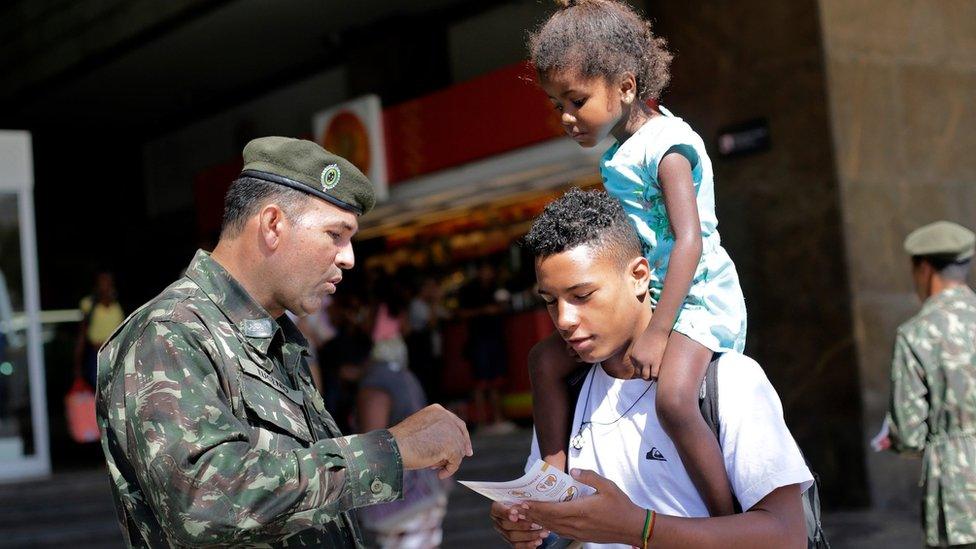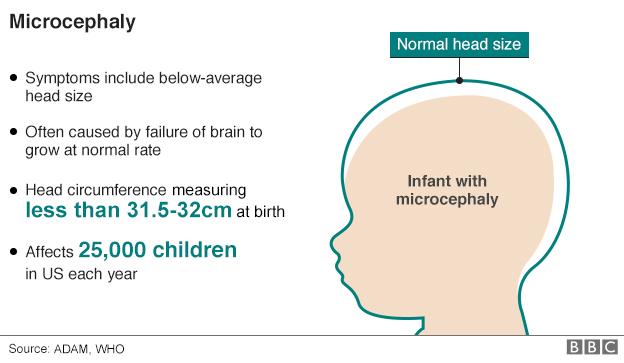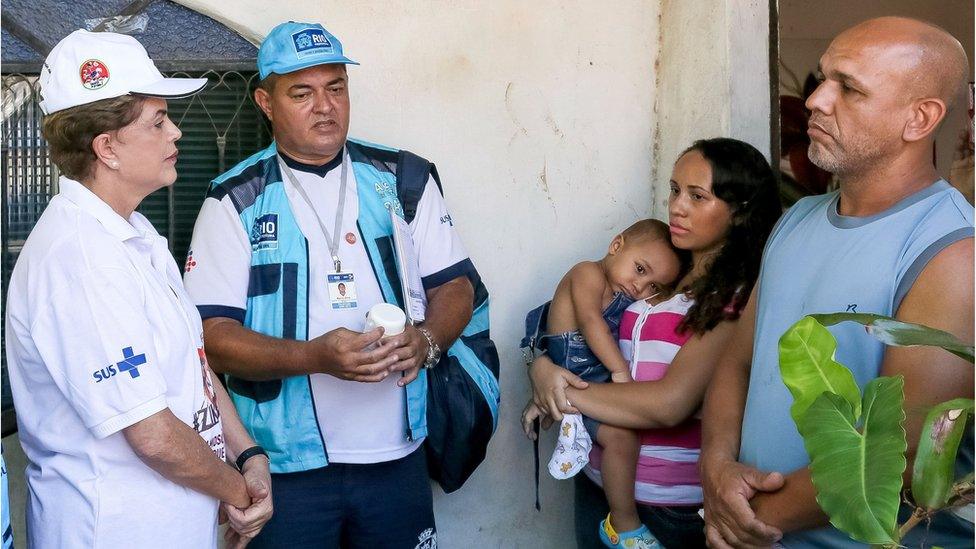Zika virus: Brazil soldiers deployed to warn of risks
- Published
More than 200,000 troops will be deployed on the streets of Brazil as Wyre Davies reports
More than 200,000 soldiers have been deployed across Brazil to warn people about the risks of the Zika virus.
Brazil is at the centre of an outbreak of the virus, which has been linked to a surge in babies being born with underdeveloped brains.
The country has 462 confirmed cases of microcephaly, and is investigating another 3,852 suspected cases.
President Dilma Rousseff said the crisis would not "compromise" the Olympics Brazil is hosting in August.
Brazilian troops are going door to door, handing out four million leaflets advising people about the risks of the virus, carried by mosquitoes.

Leaflets and chats - the government wants to boost morale in addition to raising awareness
The BBC's Wyre Davies, in Rio de Janeiro, says the exercise is aimed at boosting morale.
But critics have said the move would not helping reduce mosquito numbers or stop the spread of Zika, our correspondent adds.

The World Health Organization (WHO) has declared a global public health emergency over the possible connection between Zika and microcephaly, a condition marked by abnormally small heads in newborn babies that can result in developmental problems.
The link with Zika has not been confirmed, but the WHO and other public health bodies have said it is strongly suspected.
On Friday, the WHO said it expected that a link would be established within weeks between Zika, microcephaly and another neurological disorder, Guillain-Barre syndrome.

President Rousseff wants people to benefit from an awareness campaign - here she is visiting Santa Cruz area in Rio de Janeiro
A new testing kit is being developed to identify infections quickly
The microcephaly cases have been centred in north-east Brazil, but the Zika outbreak has affected people in more than 20 countries in the Americas.
Colombia said on Saturday that 5,013 pregnant women were infected - out of a total of 31,555 cases.
Some governments have advised women to delay getting pregnant. Already-pregnant women have been advised not to travel to the countries affected.


More on the Zika crisis:
Microcephaly: Why it is not the end of the world
What you need to know: Key questions answered about the virus and its spread
Travel advice: Countries affected and what you should do
The mosquito behind spread of virus: What we know about the insect
Abortion dilemma Laws and practices in Catholic Latin America